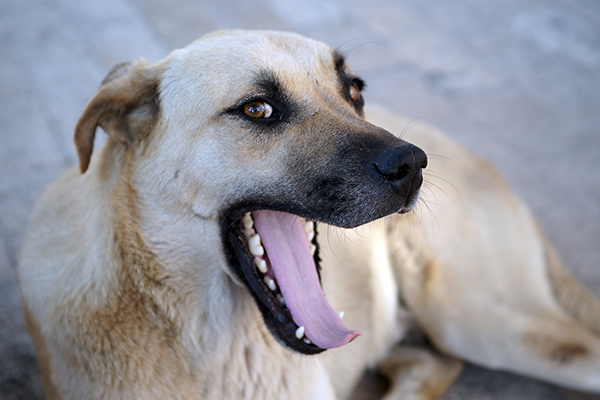Does Your Dog Have Bad Breath? Here’s What Plantation, FL Pet Owners Need to Know
Bad breath in your dog could be periodontal disease, but it could also signify a serious or even life-threatening health issue. You should always brush your dog’s teeth regularly for healthy teeth and gums. If that does not hinder the bad breath, you should watch for specific symptoms that may indicate a disease.
If your puppy has bad breath, it may well be from kidney or liver disease. There are different smells attributed to these specific illnesses. If you smell a foul-smelling odor coming from your dog’s mouth, do not ignore it.

If you see anything unusual with your dog, you should take them to the veterinarian as soon as possible. Your attention can make all the difference in the overall health of your canine companion. Read this article to explore why your dog has bad breath.
Why Does My Dog Have Bad Breath?
When you have your dog’s teeth checked, the vet will be on the lookout for plaque accumulation, gingivitis signs, or gum inflammation. If your pup’s oral health is neglected, it can result in dangerous bacteria getting into the bloodstream through the damaged gum tissue, and it can result in:
- Heart issues
- Liver problems
- Kidney damage
As you can see, something that seems insignificant is essential for your canine’s health.
Dental Disease
Most of the time, in dogs, bad breath is caused by dental or gum disease. Dogs need regular dental cleanings to keep their teeth and gums healthy. Professional dental cleaning (see video) will remove plaque and tartar accumulation that cannot be removed with just dental treats alone.
When you and your pup visit the vet to get teeth cleaned, your vet will clean and polish the teeth with professional equipment to remove plaque and tarter. If your dog is healthy enough, they will be given anesthesia for this procedure.
There may be X-rays taken to see if there is a problem with the gums. Your vet will apply dental sealer or fluoride to provide extra protection. Your vet will also examine to make sure there are no loose or damaged teeth.
When the vet has finished cleaning, your dog will be brought out of anesthesia. Depending upon whether your pup had to have their teeth extracted, antibiotics and pain medications may be given.
Neglecting the care of your dog’s teeth can lead to periodontal disease. The condition results in:
- Bleeding gums
- Bad breath
- Tooth loss
It is essential to make sure that your dog’s teeth are clean and plaque-free. If your pup has terrible breath, you should make an appointment with the vet to ensure that they do not have an illness causing it.
Your pup should get their teeth professionally cleaned about once every six months to once a year. Smaller dogs have a greater chance of getting periodontal because their teeth are crowded in their mouth, and they tend to need their teeth cleaned more often.
You can also try brushing your pup’s teeth yourself. Do not use a human toothbrush, as a small pet toothbrush is more appropriate. There are many options when it comes to keeping your pup’s teeth clean.
Gut Microbiomes Imbalance
Good bacteria help to preserve your dog’s gut health. If the balance between good and toxic bacteria is disrupted, it can cause your dog to have bad breath. If there is too much unsafe bacteria in their gut, it can overpower the good bacteria.
The harmful bacteria triggers yucky, smelly gas that your pup exhales as bad breath. Harmful bacteria in the mouth can mix with saliva, which your dog swallows. Bad bacteria get into the gut, and a vicious cycle ensues.
Kidney Failure
Your dog’s kidneys regulate the urine and waste that is expelled through the body. If your pup has kidney disease, it can cause their breath to smell like urine. Your dog’s kidneys may develop health problems if:
- The blood flow to the organs is inadequate
- Infections are present
- If there is a urinary obstruction
- If there has been the ingestion of toxin
Chronic kidney failure in dogs is linked to advanced periodontal disease. It occurs when bad bacteria from oral health problems get into their bloodstream and attacks their organs.
Liver Failure
The liver breaks down toxins within the body and helps with digestion. If your dog is suffering from liver disease, they may have bad breath because of the reduced functioning of the liver. If it cannot filter out toxins, the result is bad breath. Dogs with liver failure often have breath that smells like a dead animal.
Some of the symptoms that are present in liver disease include:
- Vomiting
- Diarrhea
- Yellowing of the corneas
- Decreased appetite
- Weight loss
- Fluid in the abdomen
Bad breath occurs because your dog is unable to break down toxins in the liver. If you see these indicators in your dog, get them to the vet immediately.
Diabetes
If your dog has diabetes, their breath may have a sweet smell to it. The fruity smell results from ketoacidosis, which is a serious and potentially life-threatening complication of diabetes. If your dog has sweet-smelling breath, take them to the vet right away. Some of the symptoms in diabetic dogs include:
- Excessive thirst
- Frequent urination
- Decreased appetite
- Cloudy eyes
Uncontrolled diabetes can also foster bacteria in the mouth, which is triggered by the suppression of the immune system.
Oral Tumors
Oral tumors can also produce bad breath in your dog. Ora tumors grow so fast that the blood vessels cannot keep up, which causes dead areas. The growth of bacteria is the result. Oral tumors in dogs are usually located on the roof of the mouth or around the gums.
Some of the symptoms of oral cancer in dogs include:
- Excessive drooling
- Blood coming from the mouth
- Oral pain
- Loose teeth
- Visible mass in the mouth
- Difficulty chewing or drinking
An oral tumor tends to smell like rotten meat because it contains dead tissue. If you see any of these warning markers in your dog, get them to the vet immediately.
Heart Disease
Studies have demonstrated that the greater severity of periodontal disease, the greater the risk and severity of heart disease in dogs. The heart and liver are especially at risk for developing inflammation from periodontal disease. Some of the symptoms of heart disease in dogs include:
- Difficulty breathing
- Exercise intolerance
- Fainting or collapse
- Pale or blue gums
There is a definite correlation between dental disease and heart problems in dogs. If you see any of these symptoms, get your pup to the veterinarian as soon as possible.
Keep Your Dog’s Bad Breath Under Control
Pet parents need to know that while dogs will often have bad breath, it is not normal. Foul breath is a sign that something is not right with your dog, and they need the appropriate care to resolve the issue.
Most of the time, your fur baby has bad breath because of poor dental health. However, if there is an underlying illness causing the bad breath, you need to plan with your veterinarian concerning their treatment.
